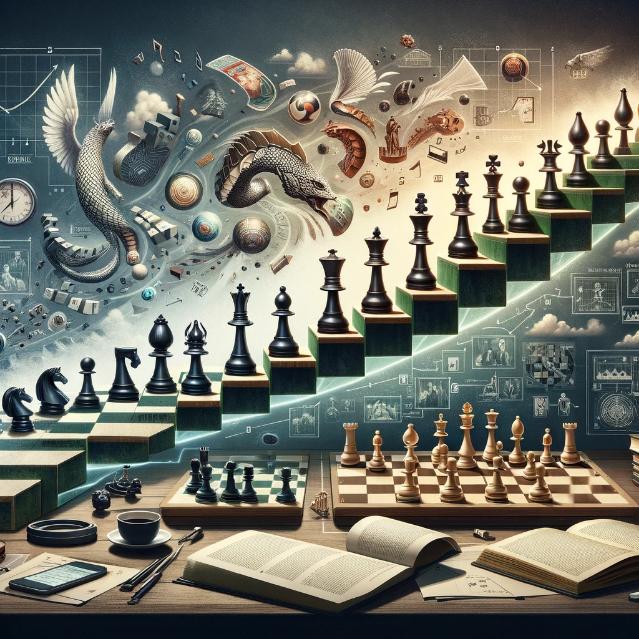Introduction
Chess has been played for centuries and has become known as the “game of kings”. It is a strategic board game that requires critical thinking, foresight, and planning. The name “chess” itself is derived from the Persian word “shah”, meaning king. Throughout history, chess has been associated with royalty and has been played by kings, queens, and nobility. In this essay, we will explore the reasons behind why chess has earned the title of the “game of kings”.
Historical Significance
The origins of chess can be traced back to the 6th century in India, where it was known as “chaturanga”. The game made its way to Persia and became known as “shatranj”. During this time, Persia was ruled by the Sassanid Empire, and chess was a favorite pastime of the nobility, including the king. As the game spread to other countries, it continued to be embraced by rulers and high-ranking officials. This association with the elite led to chess being referred to as the “game of kings”.
In the European Middle Ages, chess became popular among the nobility and royalty. In fact, during this time, chess was seen as a symbol of chivalry and was often used as a way for knights to showcase their strategizing skills. The game became a staple in royal courts, and tournaments were held to determine the best players.
As chess continued to spread throughout Europe, it gained the attention of many monarchs. One of the most well-known and avid players of chess was King Henry VIII of England. He was known to have a custom-made chess set and even had a chess room in his palace at Hampton Court. Other notable kings who were passionate about chess include King Philip II of Spain and King Gustavus Adolphus of Sweden.
Socio-Cultural Significance
Aside from its association with royalty, chess also held a significant place in society. In the past, education was only available to the wealthy, and chess was seen as a way for the elite to showcase their intelligence and critical thinking skills. This led to chess being a status symbol, and it became a way for the wealthy to display their wealth and education.
Chess also had a social function as it brought people together from different backgrounds to play and compete. In Europe, the game was seen as a way to promote social mobility, as a player´s success in chess was not tied to their social status. It was a way for the lower classes to potentially rise in society by showing their intellectual prowess.
Moreover, chess was also seen as a way to improve moral character. In the 19th century, chess clubs and societies were formed to promote the game, and it was believed that playing chess would improve one´s mental discipline and decision-making skills. These values were highly regarded in society, and chess was seen as a way to instill them in individuals.
Representation of Power and Strategy
One of the main reasons why chess is often associated with the game of kings is its representation of power and strategy. In earlier versions of the game, the most powerful piece was the advisor or vizier, who later evolved into the queen in modern chess. The queen, being the most powerful piece on the board, represents the queen or regent in a monarchy, and the objective of the game is to protect the king at all costs, as he is the most important piece.
Chess is a game of strategy and foresight, often referred to as the “game of war”. Just as a king must think ahead and plan for his kingdom´s protection, a chess player must plan and anticipate their opponent´s moves. This aligns with the qualities and skills required of a ruler, making chess a popular pastime of kings.
Conclusion
In conclusion, the title of the “game of kings” bestowed upon chess is a reflection of its historical significance, socio-cultural impact, and representation of power and strategy. Over the centuries, the game has gained a place of prestige and has been embraced by rulers and nobility. Its enduring popularity speaks volumes about its complexity and appeal. Indeed, chess is truly deserving of the title “game of kings”.

